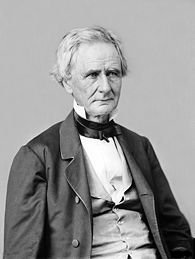Finally for investors in rent-seeking organizations there is the real risk that the politicians will change the rules. Heed the words of Sen. Simon Cameron (R&D!-Pa.):
"The honest politician is one who when he is bought,
will stay bought."
From the Wall Street Journal:
The German government could realistically cut between 16% and 17% of the subsidies it gives to solar-power providers, Economics Minister Rainer Bruederle said Tuesday.Last week when the 16-17% number was first being bandied about the German trade association said (via PV-tech):Addressing an energy conference in Berlin, Bruederle said solar power is one facet of a broader program to encourage investment in renewable energy in Germany.
Bruederle said Germany must position itself as a leader in developing renewable energy technologies, both for the benefit of German companies and to increase the country's energy independence.
"There is no alternative to increasing our pursuit of alternative energy and energy storage," Bruederle said.
In response to the to unconfirmed media reports concerning the possible threat of between 16-17% cuts in the EEG feed-in tariffs by as early as April 2010, the German Federal Solar Industry Association (BSW-Solar) said in a statement on its website that there was no room for such large cuts, especially on the back of what is effectively a 10% cut automatically in place since the beginning of the year. The trade association warned that lowering the FiT rates too fast, endangered 50,000 jobs in the German solar industry, and put at risk over €10 billion in planned production expansion plans and future R&D investments.As previously reported, the BSW-Solar has supported further cuts as solar module prices have fallen by as much as 40% in 2009; however, the group supported extra cuts lower than what is being claimed in news reports that the German government is planning to adopt.
In a statement BSW-Solar President Günther Cramer said, "For this we need the support of the policy and funding policy with a reliable sense of proportion."
A report by Landesbank Baden-Wurttemberg (LBBW) and noted in the BSW-Solar statement claims that a reduction in FiT rates in double-digit percentage range would not only harm the German solar industry with much production shutdown due to lack of demand, but that Asia-based PV module suppliers would benefit the most as their lower manufacturing costs would see them gain market share over German-based producers.
Ironically, according to a Digitimes story, Chinese- and Taiwanese-based module producers they contacted believed the revised FiT cuts were designed to slow demand because foreign producers have been gaining market share and that a majority of modules installed in the German market were foreign not domestic. How this would actually benefit German producers wasn’t clear.
They follow up today:
German FiT: Masdar PV threatens revisions to solar manufacturing investment plans
The possibility of heavy cuts to the German solar feed-in tariffs could not only reduce demand for solar installations in what should become the largest market in the world in 2009, it could also see reduced investments and job losses in the sector, according to Masdar PV, CEO Dr. Rainer Gegewart. Speaking at the World Future Energy Summit currently being held in Abu Dhabi, Gegewart warned that should muted FiT cuts be made, the a-Si thin film manufacturer would revise their investment plans in Germany and look for new opportunities abroad as those markets would grow, compared to a possible contraction in Germany....MORE
